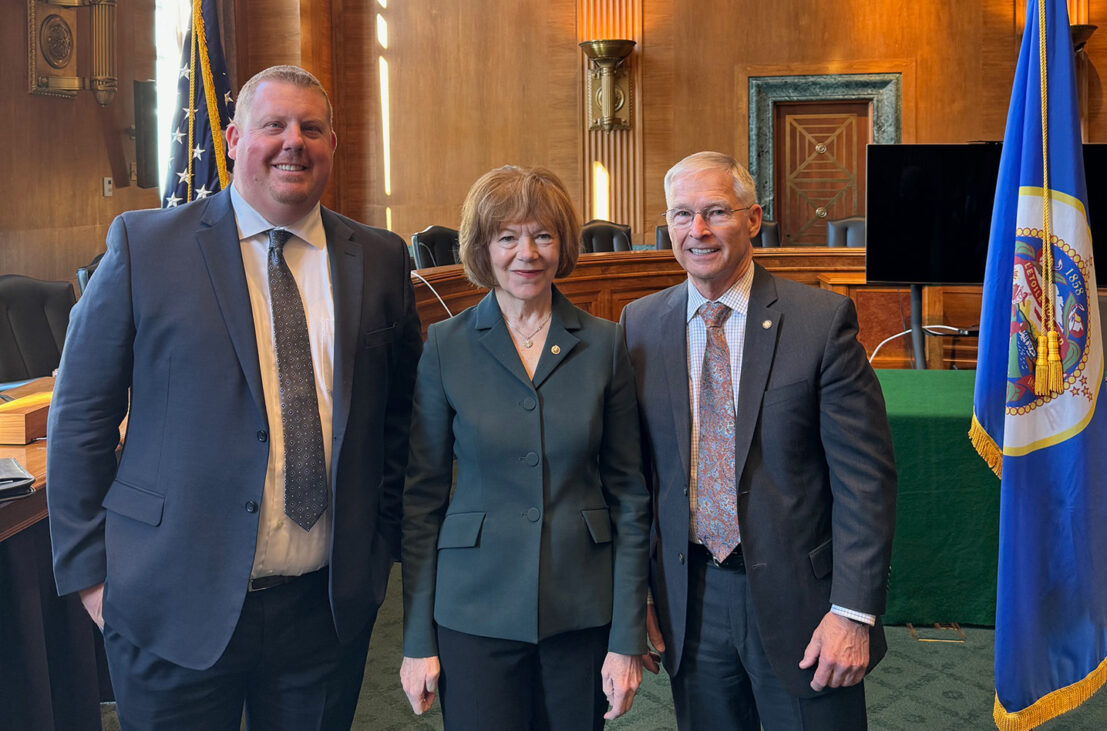
April 2, 2024
In Minnesota, business aviation is a multi-billion-dollar industry, providing thousands of jobs at airports and other facilities in each of the state’s 88 counties, and Minnesota Business Aviation Association Executive Director Tim Cossalter makes sure his state’s congressional delegation knows the value this industry brings to the North Star State.
In addition to the group’s advocacy work at the state level, each year Cossalter heads to Washington, DC, to meet with staff for each of the 10 members of Minnesota’s congressional delegation – with the trip taking on increased urgency this year due to the administration’s plan to target business aviation with punitive tax proposals, as referenced in President Biden’s March 7 State of the Union Address.
“The comments made by the president were not appropriate,” Cossalter said. “The president is telling the world we’re not a good, credible industry, and that did not sit well with me.”
The group has been proactive in getting the word out to its more than 600 members about the importance of letting their representatives in Washington, DC know that harmful tax proposals – coupled with a plan recently unveiled by the IRS for sweeping audits of companies using business aviation – could harm a key American industry. The Minnesota Business Aviation Association website homepage now urges industry professionals to take action with a message to Congress available through NBAA’s Online Grassroots Action Center.
“We must counter negative comments about business aviation,” said Cossalter. “We are vital to Minnesotans.”
Annual DC Visit
The yearly DC fly-in by Cossalter – a military veteran and retired member of Sen. Amy Klobuchar’s (D-MN) state staff – draws from his experience as a former Senate staffer.
For example, Cossalter’s recent meetings reflect the old adage that “there’s strength in numbers,” given that he was accompanied by Andrew Wall, the incoming chair of the Minnesota Council of Airports. The two had key data ready for conversations with congressional staffers about the number of airports in their districts, the number of jobs the industry supported, and the myriad ways business aviation enables companies in the state’s rural areas to compete nationally and globally.
“We make sure that our congressional members know what business aviation is, and how important it is, in Minnesota,” Cossalter said.
The host of societal benefits generated by business aviation, and the airports that support the sector, helped to underscore the damage to an essential industry that could result from the administration’s plan for the sector. As just a few examples, Cossalter and Wall pointed to:
- The negative impact, shown in economic modeling, of lengthening depreciation schedules on purchased business aircraft. Simply put, the move would appreciably disincentivize aircraft purchases, potentially harming a world-leading manufacturing sector and inhibiting U.S. companies from obtaining a competitive asset. NBAA joined with labor unions and other GA groups in raising these concerns in a recent letter to congressional leaders.
- The fact that singling out business aviation, a subset of general aviation, for a 400% tax increase on fuel will almost certainly saddle an entire sector with an unexplained new tax burden with an impact on the mostly small and mid-sized companies using business aviation, and the communities – often without airline service – where those companies are located.
- The reality that companies using business aviation are expected to operate in full compliance with tax laws and applicable Securities and Exchange Commission rules.
“I believe we had an impact with these meetings, because the conversations detailed the real story of business aviation: who we are and what we do for citizens, companies and communities all across Minnesota,” Cossalter said.
“It’s important for elected officials to hear from their constituents about the importance of business aviation and airport infrastructure in their respective states – and not only when there’s a pressing issue to discuss,” said NBAA Northern Mountain Regional Director Kristi Ivey.
“NBAA commends groups like MBAA for their commitment to legislative advocacy at the local, state and national levels.,” she added. “Every group can create a pathway and establish a dialogue with policymakers, to ensure regional group member’s voices are heard – whether about a specific concern for business aviation, or about the many reasons business aviation is essential in elected officials’ states and congressional districts.”
View NBAA’s Call to Action and ask your representatives to oppose harmful tax proposals.


 International Business Aviation Council Ltd.
International Business Aviation Council Ltd.